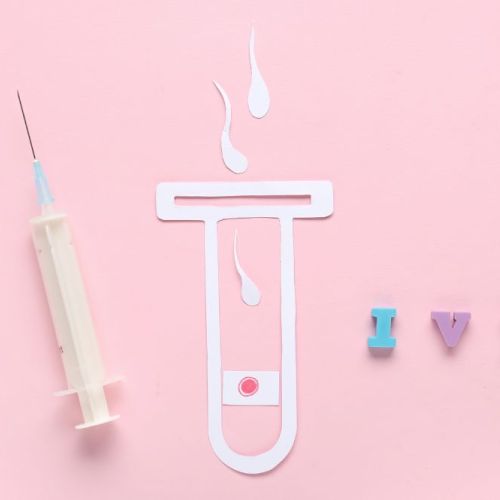My Partner Can’t Get Pregnant: Do I Need a Semen Analysis?

A semen analysis is a standard step in any infertility workup when the reason for trouble conceiving isn’t clearly evident. It’s even a good idea when the woman has a known fertility issue; a semen analysis sheds light on whether male factor infertility will complicate future assisted reproductive technology like in vitro fertilization (IVF).
Here at the California Center for Reproductive Health, our team makes getting a semen analysis as simple and comfortable as possible.
Here’s how the procedure can help your fertility journey.
What answers can a semen analysis provide?
In up to 40% of cases, male factor infertility contributes to a couples’ trouble conceiving. Oftentimes, this is because a man has abnormalities in sperm number or function – making it that much harder to fertilize an egg.
A semen analysis looks at several different factors that could impact fertility. These include:
Semen volume and concentration
If a man doesn’t ejaculate enough semen, it reduces the likelihood of conception.Even if a man has enough semen, sperm analysis looks at the number of sperm per milliliter of semen to ensure there are enough to make pregnancy a viable option.
Sperm morphology
During semen analysis, we look to see if the sperm are of a normal size and shape
Sperm motility
Healthy sperm have the ability to swim toward an egg. Immobile or slow sperm have less of a chance of creating a pregnancy.
Vitality
We want to see if the sperm in a man’s semen are actually alive.
pH level
If a man’s semen is overly acidic, it can impair sperm health.
Time to liquefaction
The time it takes sperm to change from a sticky substance to one that is more fluid impacts conception. The liquefaction process helps sperm gain their motility and ability to get to a woman’s Fallopian tubes.
White blood cell presence
If a man’s sperm has a higher-than-normal amount of white blood cells, it could be a sign of inflammation or infection, which could impede fertility.
What is involved in semen analysis?
Prior to your appointment, we ask that you refrain from intercourse or masturbation for 2-7 days. This ensures your semen has an accurate sperm sample.
When you come to our office, you’re sent to a private, comfortable room to masturbate and provide the resulting semen sample. It’s then sent to a laboratory for analysis.
What do the results mean?
The results of your semen analysis helps us create your customized infertility treatment plan. Abnormal results mean you have a less-than-average chance of getting a woman pregnant.
In some cases, you may need to make lifestyle changes like quitting smoking, avoiding excessive alcohol use, improving your intake of antioxidant-rich foods, and losing weight. If your hormones seem to be a factor in your male factor infertility, you may also benefit from hormonal treatments.
More severe issues with your semen may require in vitro fertilization or intracytoplasmic sperm injection.
Ultimately, our goal is to help you and your partner conceive and go on to have a healthy pregnancy. Call one of our offices in Encino, Alhambra, Valencia, or West Hollywood if you’re ready to explore your fertility options.
Eliran Mor, MD
Reproductive Endocrinologist located in Encino, Valencia & West Hollywood, CA
FAQ
What does a reproductive endocrinologist and infertility specialist do?
Reproductive endocrinology and Infertility is a sub-specialty of Obstetrics and Gynecology. In addition to managing medical and surgical treatment of disorders of the female reproductive tract, reproductive endocrinologist and infertility (REI) specialists undergo additional years of training to provide fertility treatments using assisted reproductive technology (ART) such as in vitro fertilization.
Reproductive endocrinologists receive board certification by the American Board of Obstetrics and Gynecology in both Obstetrics and Gynecology and Reproductive Endocrinology and Infertility.
When should I see an REI specialist?
In general, patients should consider consulting with an REI specialist after one year of trying unsuccessfully to achieve pregnancy. The chance of conceiving every month is around 20%, therefore after a full year of trying approximately 15% of couples will still not have achieved a pregnancy.
However, if a woman is over the age of 35 it would be reasonable to see a fertility specialist earlier, typically after 6 months of trying.
Other candidates to seek earlier treatment are women who have irregular menses, endometriosis, fibroids, polycystic ovary syndrome (PCOS), women who have had 2 or more miscarriages, or problems with the fallopian tubes (prior ectopic pregnancy).
What are the reasons we are having trouble conceiving?
Approximately 1/3 of the time cause for infertility is a female factor, 1/3 of the time a male factor, and the remaining 1/3 a couples’ factor.
At CCRH, we emphasize the importance of establishing a correct diagnosis. Both partners undergo a comprehensive evaluation including a medical history and physical exam.
Furthremore, the woman’s ovarian reserve is assessed with a pelvic ultrasound and a hormonal profile. A hysterosalpingogram (HSG) will confirm fallopian tube patency and the uterine cavity is free of intracavitary lesions. A semen analysis is also obtained to evaluate for concentration, motility, and morphology of the sperm.
Additional work up is then individualized to direct the best possible treatment option for each couple.
What is IVF? What is the process like?
In vitro fertilization (IVF) is the process that involves fertilization of an egg outside of a woman’s body.
The process starts with fertility drugs prescribed to help stimulate egg development. In your natural cycle, your body is only able to grow one dominant egg, but with stimulation medication we can recruit multiple eggs to continue to grow. After about 8-10 days of stimulation, the eggs are surgically retrieved and then fertilized with sperm in a specialized laboratory. Fertilized eggs are then cultured under a strictly controlled environment within specialized incubators in the IVF laboratory for 3-5 days while they develop as embryos. Finally, embryos (or an embryo) are transferred into the uterine cavity for implantation.
Should I have IVF?
Before deciding if IVF is the right choice, it’s important to sit down with an REI specialist to discuss available treatment options. For some people, other methods such as fertility drugs, intrauterine insemination (IUI) may be the best first choice treatment. At CCRH, we believe each individual couple is unique and not everyone needs IVF.
Is the IVF procedure painful?
While not painful, the fertility medications may some side effects including headaches, hot flashes, mood swings, and bloating. The injection sites may also bruise.
Will IVF guarantee a baby?
Unfortunately, no. Many people think once they start IVF it’s a matter of time that they will be pregnant and have a baby. But according to national statistics per the Society of Assisted Reproduction (SART), on average 40% of assisted reproduction cycles achieve live births in women under age 35. The chances of success then continue to decrease with advancing age.
At CCRH, we employ only evidence-based interventions to ensure patient safety and optimal outcome. While we cannot guarantee a baby, we guarantee that you will receive the best, most advanced, personalized care to help you maximize your chance of a baby.
What is the success rate for IVF?
The average IVF success rate (success measured in live birth rate) using one’s own eggs begins to drop around age 35 and then rapidly after age 40. This is due to the decline in egg quantity and egg quality as a woman ages.
Our clinic’s success rate consistently beats the national average year after year.
Do insurance plans cover infertility treatment? How much does IVF cost?
Individual insurance plans often do not have any coverage for infertility treatments. If you have a group plan, you can call members services to see if they have coverage for infertility (including consultation/workup and IVF).
After your consultation with our REI specialist, one of our dedicated account managers with sit with you to go over the cost of treatment.




